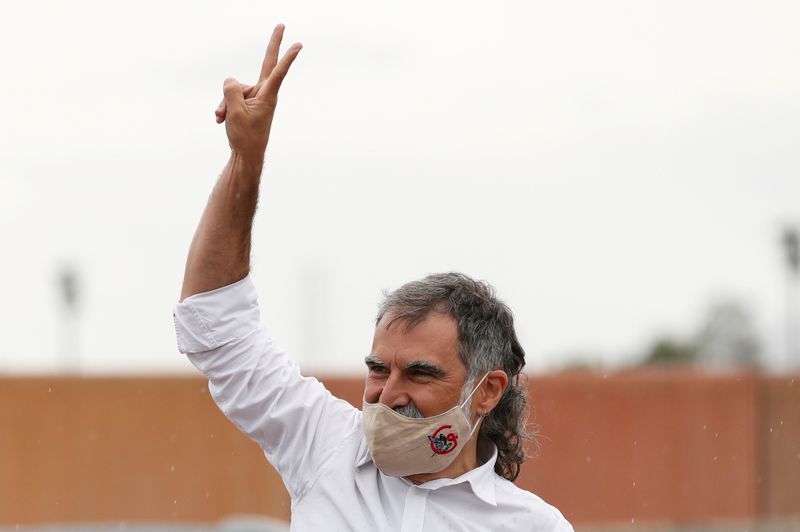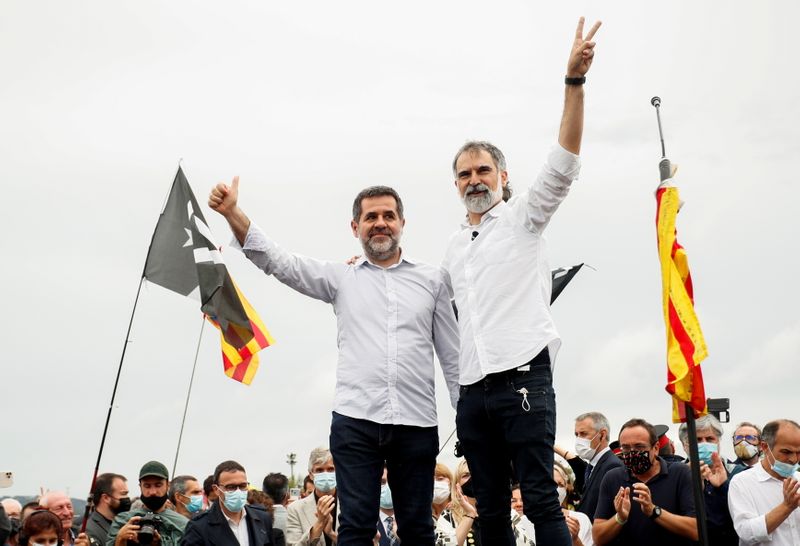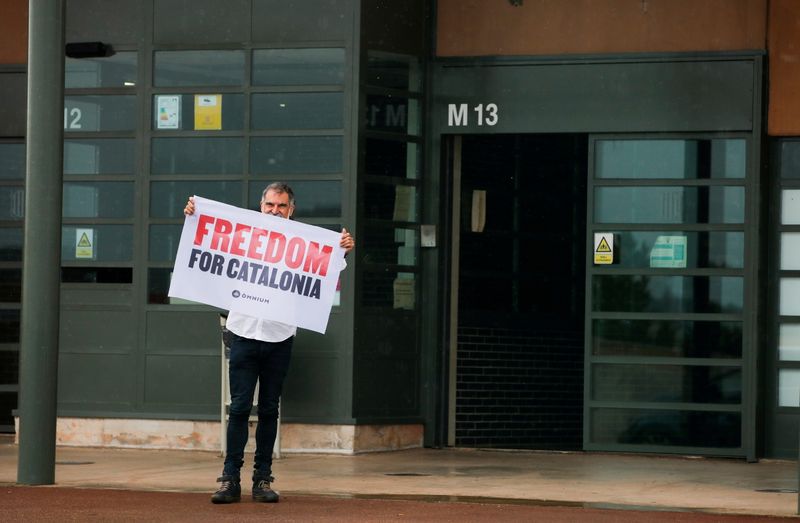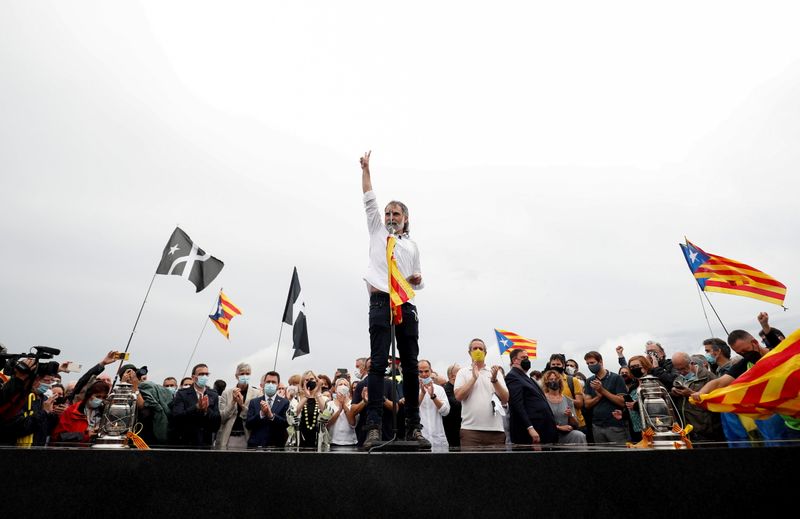BARCELONA (Reuters) – Prison has only strengthened the political convictions of Catalan civil disobedience advocate Jordi Cuixart, one of the nine separatist leaders pardoned by the Spanish government earlier this week, he told Reuters two days after his release.
Cuixart, 46, is overjoyed to have unlimited time with his two sons, aged one and four, as he could only see them once every two weeks while behind bars. But, were any of the various appeals against the pardons to succeed, he would go back to jail with his head held high.
“I have lost my fear,” he said in his first interview since leaving the Lledoners prison outside Barcelona, recalling some good friendships he made in prison, where he said he was not unhappy and felt his actions had a purpose.
“I cannot regret anything despite having paid a high price. I believe that I would do again all that I did. I learned to experience my jailing with dignity and pride,” he added.
He was first jailed in mid-October 2017, two weeks after Catalonia’s unauthorised referendum that led to a short-lived declaration of independence in Spain’s worst political crisis in decades. The Supreme Court in 2019 sentenced him to nine years for sedition while campaigning for the referendum.
With the pardons, Madrid is hoping to kickstart a dialogue with Catalonia as it seeks to curtail its separatist push.
Cuixart said he would keep working tirelessly for the wealthy northeastern region to be able to exercise the right of self-determination, but has no intention to enter politics.
He chairs Omnium, an organization founded in 1961 to protect the Catalan culture when public use of the Catalan language was banned under General Francisco Franco’s dictatorship.
With fellow activist Jordi Sanchez, he spent the longest time behind bars among the nine, most of whom are politicians. Their jailing was criticized by U.N. representatives and the rights group Amnesty International.
Cuixart argued the pardons had been prompted by domestic and international pressure and said he had nothing to thank the Prime Minister Pedro Sanchez for.
“I believe it’s the Spanish government, it’s mister Sanchez who should apologise to us for these four years in jail,” said Cuixart who is seeking reparations from the Spanish state via the European Court of Human Rights.
(Editing by Andrei Khalip, William Maclean)























